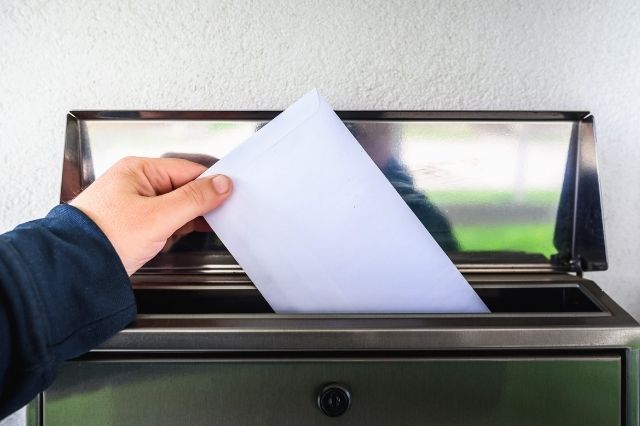
Are you wondering what to do with an evicted tenant’s personal items?
Now that your tenant has been evicted, you may have found their personal belongings are still in your property. The only question remains: when are you legally allowed to “evict” their personal items as well?
The particular course of action depends on your rental property’s location. In Florida, the laws regarding abandoned personal property are pretty straightforward.
In this article, we here at State Property Management are going to cover the basics of dealing with a tenant’s possessions after an eviction process in Florida. You’ll learn about your legal responsibilities after discovering any personal belongings of your ex-tenant who has already vacated the rental.

The Starting Point: Tenant’s Possessions Left in Your Rental
Evictions can be very stressful events. Once your tenant has successfully vacated the rental unit, you may have to deal with further problems. From unexpected repairs to basic cleaning to finding another renter, the time following an eviction can be just as stressful.
In many cases, finding a previous tenant's property means finding things that have no value. This can be discarded packages, old bottles, or random food items. All of these examples constitute personal belongings that can simply be thrown away.
But the situation gets more complicated if you find anything that has value. That value may be purely financial, but sometimes it’s more about sentimental value instead. Now, it’s time to make the right decisions by following the law.
How Is “Abandoned Personal Property” Defined in Florida?
Not all personal belongings you find can be considered abandoned property. The circumstances surrounding the relationship of your tenant with your rental property ultimately dictate the rules.
A successful eviction forms the basis for legal termination of a tenancy. If the tenant has moved out from the rental unit and the tenancy has been terminated, any property left inside the rental can be considered abandoned.
How to Notify Your Ex-Tenant of Abandoned Property?
Now that you know the personal belongings are definitely abandoned, it’s important to notify your former renter of these items that were left behind. Make it known that you’ll dispose of the personal belongings if no claim is made on them.
The first step involves making a proper inventory of the items. You must also make sure that these personal items are kept in a secure place. Then, serve your tenant with a notice of the items. Provide enough details or visual materials that they can readily identify the items as their own.

Every legally-compliant notice has to contain this information:
• Detailed description of the property that your tenant left behind;
• Information about the location where your former tenant can claim the items;
• Statement regarding any charge for the reasonable storage costs of the items;
• Description of the time frame that the personal item’s owner has to claim it;
• Statement explaining that the items will be disposed of or sold if it isn’t claimed within the provided time frame.
You have two options for serving the former renter with this notice: You can mail the notice to their last known address or to an address that you know they currently reside in. Alternatively, you could deliver the notice in-person.
Mailing the notice means that your former tenant has at least 15 days to claim their personal property. If you serve them with this notice in-person, they will have at least 10 days to claim their possessions.
How to Dispose of Your Tenant’s Possessions in Florida?
Say your tenant hasn’t claimed their abandoned possessions, even after the notice period. If the property you found is worth less than $500, you can dispose of it via any legal means or use it for personal purposes.
If the abandoned property is worth $500 or more, you are required to publicly put the items up for sale. The notice regarding the auction has to be published weekly for two consecutive weeks in a local newspaper before the auction takes place.
What happens if you don’t have a local newspaper? Then you have to put up a notice of the property’s sale in six conspicuous locations in the surrounding neighborhood. The advertising materials have to be out there for a minimum of 10 days before the sale.

Your ex-tenant still has the right to claim the personal property until the closing of the sale. In this situation, your tenant has to pay more than the basic storage costs. Now, they need to pay the preparation and advertising expenses as well.
The sale proceeds can be used to cover the expenses related to advertising, storage, and preparation for the sale. However, you can’t keep the rest of it. You need to give all of the leftover money to your county’s treasury. Your former tenant has the right to claim this money from the county’s treasury for up to a year after the sale.
The Bottom Line: Tenant's Possessions After an Eviction
Dealing with unclaimed abandoned possessions requires full legal compliance in the state of Florida. It all comes down to the value of the items. Anything less than $500 means that you can proceed whichever way you want.
Abandoned personal belongings with a value of $500 or more require a more complicated approach. You need to give all the cash after storage and advertising expenses to your county’s treasury. Tenants still have up to a year to claim this sum.
If you're unsure about handling this process, State Property Management, a trusted property management company in Orlando, can help ensure you're following all necessary legal steps.
Disclaimer: Your unique situation may have legal nuances that aren’t covered above. Consult with an attorney whenever in doubt.